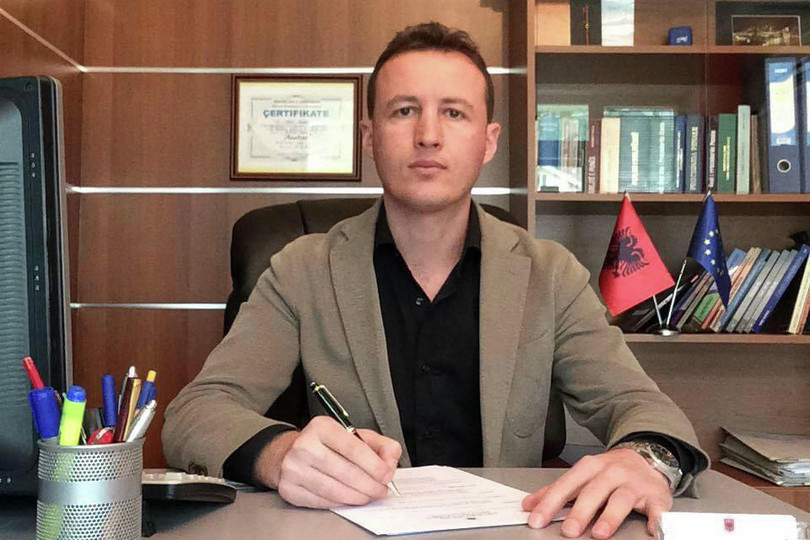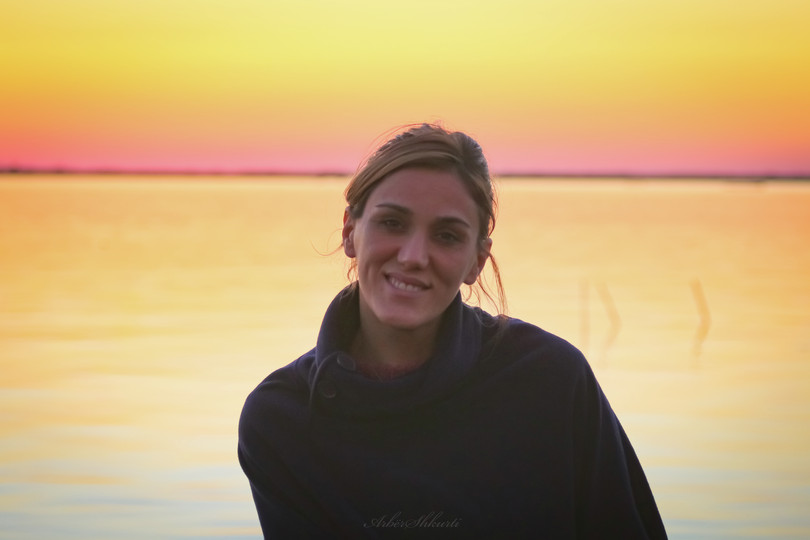Youth as the engine of the community: an interview with Sebastia Youth Centre.


The municipality of Kurbin has developed a reputation in Albania and abroad for being a finishing school for burglary. This region faces socio-economic hardships, there are limited licit career options for youth and few civil society organizations (CSOs). To address this problem, a young lawyer and a local teacher teamed up to establish the Sebastia Youth Centre, a CSO that aims to counter stereotypes and give youngsters a platform for a better life. We talk to its founders and leaders, Elton Laska and Emarilda Leti.
What can you tell us about Sebastia and the work you are doing in Kurbin?
Sebastia was established in 2013 by Elton Laska. In collaboration with a Swiss organization, Sebastia was active in providing school equipment to children in Lac, but that was a short-term engagement. In 2019, we were both working together on a project for the Albanian Caritas, which was focused on finding employment for youth in the area. When that project ended, we thought that there was still much work to be done to support youth in Kurbin. So we decided to re-launch Sebastia.
We started organizing cultural and social activities for youths on a voluntary basis. One of our first initiatives was a series of role model activities. We invited notable people from the community to come and speak to the youth to inspire them and encourage them to follow in their footsteps.
Unfortunately, this series did not last long, because Albania was hit by a devastating earthquake in November 2019 that left almost half of the buildings in Kurbin uninhabitable. So we swiftly shifted our work to humanitarian volunteering. Our team of young people helped to distribute food and secure shelter for families, collaborating closely with the Catholic church in Lac.
After the immediate crisis was over, we returned to our regular activities, this time also establishing a feminism lab for young women to discuss their challenges and how they can better understand and exercise their rights. Currently, we are also implementing a project from the European Endowment for Democracy called React for yourself, which is focused on civic engagement. We believe that young people are the engine of this community.
We are also very committed to countering the stereotypes that people have about this area. Unfortunately, Kurbin is known for the wrong reasons and television has played a role in perpetuating these stereotypes. On TV, youth from Lac are usually portrayed as being uneducated thieves. The image of the ‘hawks’ who go abroad to steal has been glamourized. Unfortunately, many young people have found an attractive new identity in this stereotype and are keen to embrace it. We want to raise awareness that this is wrong and that the Kurbin area has more to offer than this model. We have to teach the youth that they don’t need to become ‘hawks’ in order to become known and successful in life.
What are some of Kurbin’s main challenges and why is the area considered so difficult for youth to live in?
Due to high rates of unemployment and economic hardships (public administration is seen as one of the few sectors where people can find a job), some people from the area went abroad and engaged in criminal activities, like human and drug trafficking or burglary. They came back to Kurbin and flaunted their new-found wealth. Unfortunately, they were seen as role models by youth in the area. Often, these people not only have money but also power in the area and beyond. They have achieved the dream of becoming rich and powerful in a short period of time, something that their parents were not able to do despite having worked hard their whole lives. So many young people look up to these criminals as their idols. It is a major challenge to get the youth in the area to reject these role models and embrace new ones.
I should add that the youth here are not aware of their rights and they have literally no place to go for social and cultural activities. After school, young women stay indoors, while young men gather in coffee shops or smoke cannabis in the street. Drug consumption has started to become problematic, not least in the school environment.
What is the organized-crime situation like?
It is not easy to speak openly about organized crime in Kurbin, since some of these people or groups have strong connections with people in power. There are criminal organizations from the area that are also active abroad. It is important for central and local authorities to collaborate closely to tackle the problem.
For us, as a civil society organization, it is vital that we prevent these networks from recruiting youth from the area and that we give young people the confidence and opportunity to live an honest life. We all know somebody in the neighbourhood that was involved in illicit activities and who is considered a role model because they have money and power. This needs to end.
What can organizations like yours do to change this reality?
While the biggest effort should come from central and local governments, we cannot do nothing and wait for somebody else to act. One specific project that we think could make a difference is building a youth centre. It could serve as a recreational and educational space and help orient young people towards a licit career path. It is also important that we help young people understand the consequences of criminal behaviours and the various forms of organized crime.
We also want to promote the best models that this area has to offer in terms of human resources, skills and experiences, as well as historical and touristic resources. We are ready to build this centre but are still searching for financial support. We hope that one day there will physically be a Sebastia Youth Centre.
